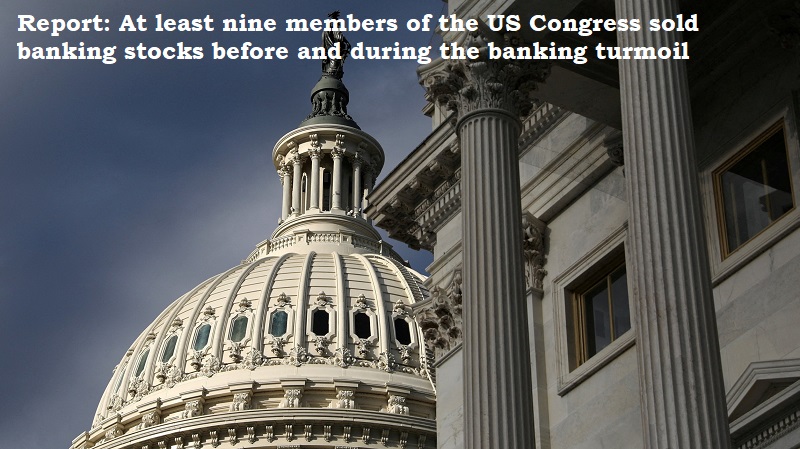
According to The Financial Times, at least nine members of the US Congress have sold banking stocks before and during the banking turmoil in March, which has raised suspicions of possible insider trading. One of the members of the financial services committee, Democrat Josh Gottheimer, disclosed a sale of shares in Silicon Valley Bank on March 9, a day before the bank collapsed, sending U.S. banking stocks plummeting.
Gottheimer sold his shares in Charles Schwab Corp. on March 6 and March 14, as well as his shares in troubled Florida bank, Seacoast Banking, on March 29. Gottheimer was one of the most active stock dealers in the House of Representatives in 2022, with over 380 transactions. However, his representatives have pointed to a statement from last year in which he stated that his financial decisions were made at the discretion of a third-party financial consultant.
Daniel Goldman, a House Democrat from New York, also sold a Schwab position worth between $15,000 and $50,000 on March 6, and his shares in San Francisco-based First Republic Bank on March 15.
These allegations of stock sales by members of Congress have raised concerns about potential conflicts of interest, as lawmakers can access non-public information that could impact stock prices. Insider trading, which involves using non-public information to gain an unfair advantage in stock trading, is illegal and unethical.
Public advocacy groups have expressed concerns that allowing government officials to own or trade stocks could create a conflict of interest with their official obligations, even if they are legally required to declare them. Danielle Caputo, legal counsel for ethics at the Campaign Legal Centre, a campaign watchdog organisation, told Financial Times that ‘it exemplifies why public trust in elected officials is so low.’
Currently, members of Congress can wait up to 45 days to register their trades, meaning that more transactions may emerge in the future.

Post Your Comments